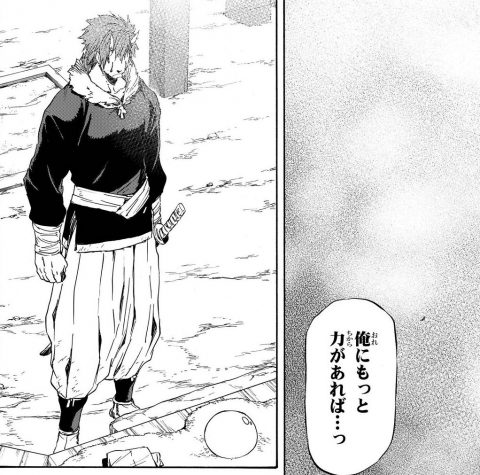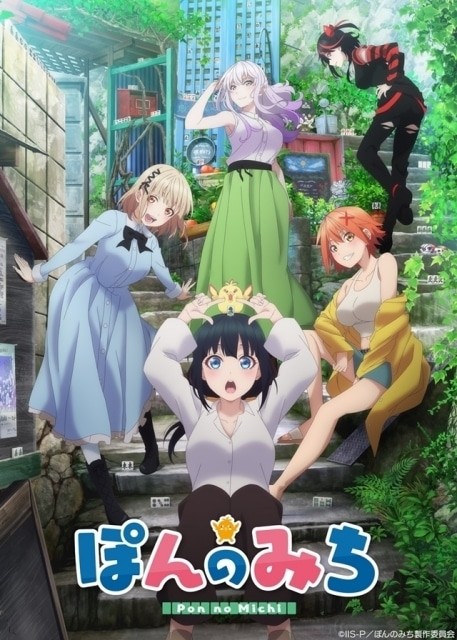The hugely popular app game "Fate/Grand Order" has surpassed 13 million downloads and is currently a very popular smartphone app. In fact, it has been announced that "Fate/Grand Order" will be adapted into a TV anime in 2019! It will be called "Fate/Grand Order - Absolute Demonic Front: Babylonia." Fans of the original app are sure to be excited by this news. In this article, we will introduce Siduri, a character who appears in the work. She serves as an assistant to the "Arrogant King," Gilgamesh, but what kind of character is she?
What kind of character is Siduri?
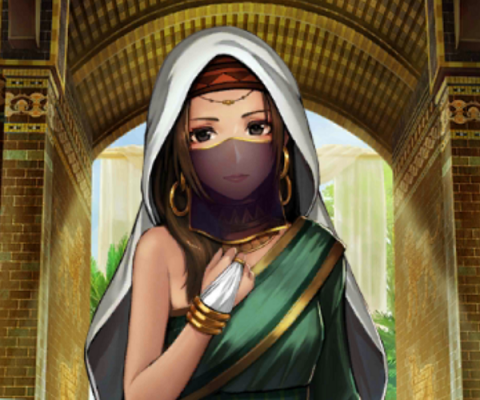
Sidori is the chief priest of Uruk City and serves as Gilgamesh's assistant. In the seventh singularity of "Fate/Grand Order," "Absolute Demonic Front: Babylonia," when Merlin returns to Gilgamesh, he is entrusted with the care of the protagonists he brought with him. He also offers the protagonists a lodging in a former liquor store and arranges for them to work as a "jack-of-all-trades" looking after various business ventures in Uruk. After defeating the false Tiamat, he is abducted while protecting the citizens of Uruk from the sudden appearance of the Lahmu, and goes missing.
What's Siduri's personality like?
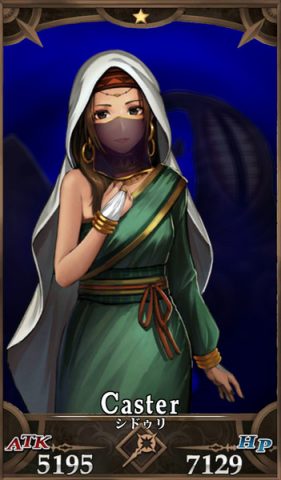
Siduri has a pure and intelligent personality. She also possesses a strong core. She is the most devout and exemplary priestess in Uruk, and both those around her and Gilgamesh trust her. While she is loyal to her assistant, Gilgamesh, she also has a surprising side, such as not being shy about offering advice to him.
A summary of Siduri's appearances!

Where does Sidori appear? In the Fate series, she appears in the seventh singularity of "Fate/Grand Order." Furthermore, in "Fate/strange Fake," while she isn't mentioned by name, there's an exchange in which Gilgamesh recounts to Tine the story of the "mongrel" he had interacted with before his death. As the anime adaptation approaches, we may see her appear in even more scenes. We're looking forward to seeing more!
A Summary of the Relationships Surrounding Sidori!
From here on, we'll summarize the relationships surrounding Sidori. First, let's talk about Siduri's relationship with those around her in "Fate/Grand Order."
Protagonist (Grand Order), Mash Kyrielight

She received orders from the king to "take care of" these two. As such, she looks after them as foreigners, but she also seems to be concerned about them in other ways. According to Siduri, the king rarely spoke directly about them. While he might declare them unnecessary, he never called them "worthless" or "meaningless." Her feelings of trust are genuine, and she couldn't help but shed tears when Gilgamesh acknowledged the protagonists.
Merlin
Merlin is a half-demon summoned by Gilgamesh. He seems somewhat troubled by Gilgamesh's free-spirited personality, and can be harsh in his dealings with others.
Gilgamesh
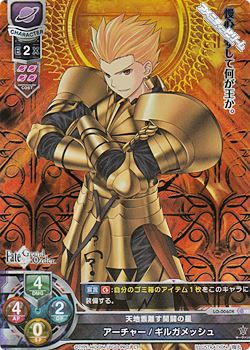
Gilgamesh is the king of Uruk. Though he is loyal to Gilgamesh, he is not shy about expressing his opinions. When Gilgamesh returned from his journey to attain immortality, he clearly stated, "I wish I hadn't said a word of complaint." We'll introduce Gilgamesh in more detail later.
Enkidu
Enkidu is Gilgamesh's friend. He is stubborn, claiming to be nothing more than a tool, but Siduri says he only ever seemed like a kind person.
Ishtar
Ishtar is a goddess whom Siduri worships. In the Seventh Singularity, Gilgamesh insulted her, but she told him to be more careful with his words. Incidentally, in "Grand Order," she is not very forceful towards Siduri.
Who is Gilgamesh, the one Siduri is assisting?
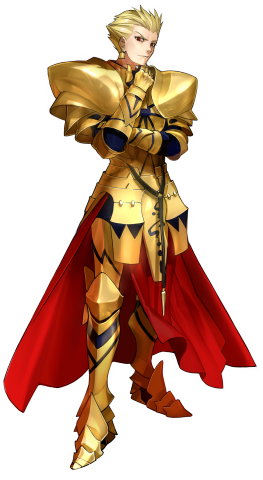
Gilgamesh is an Archer Servant who appears in the "Fate" series. As his name suggests, the "Golden Servant" is clad in golden armor. He is the second Archer to appear in the series. He has a contemptuous attitude toward his targets and can also be a tyrant. He stands out from the crowd, exuding an intimidating presence with the radiance of his soul and aura that is extraordinary compared to ordinary Servants.
Extraordinary Power
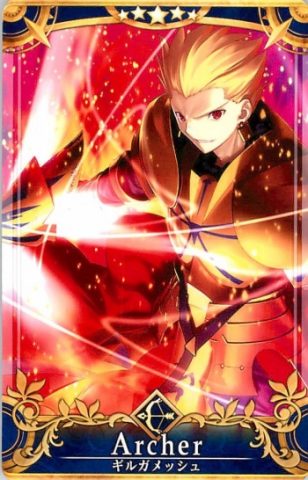
Gilgamesh possesses extraordinary abilities. His soul capacity is more than three times that of a normal Servant. Only Karna can rival this, demonstrating his considerable power. Incidentally, his combat abilities are also extraordinary, allowing him to wield swords and spears with superior skill. While he can be summoned as a Heroic Spirit in classes such as Saber or Lancer, he is summoned as an Archer due to his ability to perform long-range attacks using his Noble Phantasm, which projects swords and other weapons from another dimension. By the way, because he is an irregular character in the Fifth War, after his true identity is revealed, he is often referred to by his true name rather than his class name.
He doesn't seem interested in the Holy Grail, but...

By the way, Gilgamesh doesn't seem to have any interest in the Holy Grail at all. However, despite this, he has participated in the most Holy Grail Wars of all Servants.
Gilgamesh's Personality
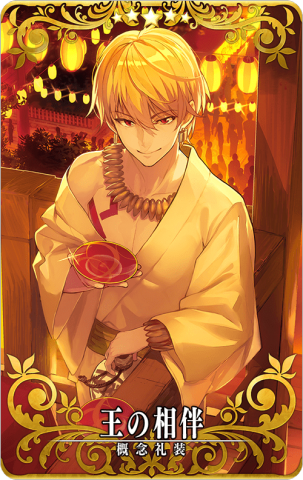
Gilgamesh is "egocentric" and "arrogant," and he never gives up on calling himself "the one and only king." He is also quite aggressive and cruel, and has a dangerous side to him: He will even kill his own Master if he becomes an eyesore. He also enjoys tormenting those weaker than himself, and his tendency to take pleasure in the misfortune of others makes him known as one of the most dangerous Servants. However, he also shows mercy and generosity toward young children and those he deems worthy, even among artificially created life forms. His personality and considerable abilities make him arrogant and sometimes careless in battle, often resulting in his being caught off guard even by opponents of a lower rank. For this reason, he's sometimes referred to as the "Arrogant King." However, he's completely resigned to his guilt and doesn't seem to want to change.
Will He Not Give It His All?
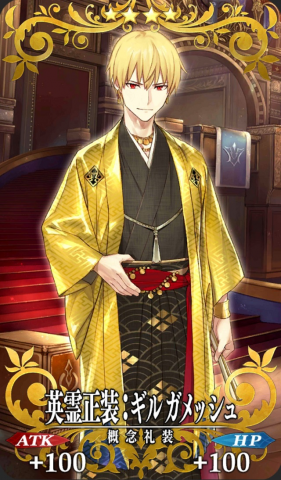
By the way, if he were to seriously tackle the Holy Grail War, he would have the skills to finish it in one night. However, he never gets serious, believing that "getting serious would be a disgrace to the king," and he has no interest in the Holy Grail itself. His only goal in the battle is to bring down the hammer on the scoundrels who are fighting over his treasure.
What is Siduri's famous line?

Siduri's famous line is, "A white flag... I see, in your country, it's a symbol of surrender..." This is spoken during the Seventh Singularity. When introducing herself to the protagonist, Siduri teaches them that "a white flag represents happiness." At the time, it seemed like a trivial line, but it actually has a deeper meaning. Check out the story for more details!
Siduri is played by Yoko Kadoyama!
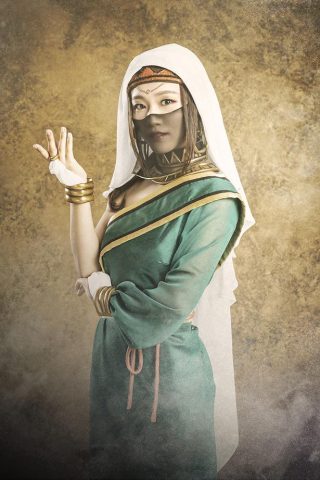
This work has also been adapted into a stage play, titled "Fate/Grand Order THE STAGE - Absolute Demonic Front: Babylonia." Siduri is played by Yoko Kadoyama. Kadoyama's stage debut was in 2018, in the role of Momiji in the musical "Onmyoji: Heian Emaki." She will also be holding her first solo live performance in November. Her special skill is singing, and her hobbies include watching plays, anime, manga, and games. She's also a big fan of the Takarazuka Revue.
Other Activities
In 2019, she also played the role of Honami Hisame in "Shoujo☆Kageki Revue Starlight -The LIVE- #2 revival." She also has voice acting roles, including Kuroko Mashiro in the smartphone game "Regienne" and Hamada Shiori in the drama CD "DUEL!"
Anecdotes about Siduri!

In the historical "Epic of Gilgamesh," Sidori appears as the proprietress of a tavern. However, in the Fate universe, she has risen from her status as the daughter of a tavern owner to the position of chief priest. Incidentally, in the Seventh Singularity, the lodgings provided to the protagonist and his companions were originally used as a tavern. Furthermore, she appeared on Gilgamesh's Saint Graph, featured in the 2017 April Fool's Day project "Fate/Grand Order Gutentag Omen." Incidentally, Siduri also appears in the "Why-Why Uruk Theater" in the limited-time event "Merry Christmas in the Underworld" as Dumuzi's older sister, Geshtinanna.
A Resistant Lahmu
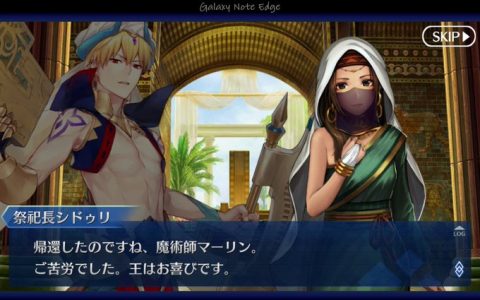
Siduri herself fades out after being abducted by Lahmu in Chapter 16, but "A Resistant Lahmu" appears in Chapter 17 of the Seventh Singularity. Furthermore, users have speculated that this individual may be Siduri, who transformed into a Lahmu in Tiamat's Ocean of Life. This was addressed in more detail in a roundtable discussion looking back at Part 1 published in Chaldea Ace. In-game, this Lahmu does not attack players and does not even have a charge gauge. It does make a few moves each turn, but only shouts and raises its arms in a threatening manner. It's believed that this was actually a "white flag" taught to it by the protagonist, and it's likely that it was an attempt to ask for help from the protagonists.
Traumatizing
However, some users unaware that this surrender could be interpreted as the Lahmu's "calling for allies," leading them to attack mercilessly. Even if they did notice, the game left them feeling like they didn't want to defeat it, but they couldn't progress unless they did. This "defensive Lahmu" disappeared after rescuing Kingu, who was being chased by a Lahmu. This led some users to consider it one of the most traumatic experiences of the Seventh Singularity. However, it is also true that her sacrifice saved Kingu, undoubtedly contributing to the defeat of Beast II. Incidentally, since "Tiamat" and "Gilgamesh," the origins of the Seventh Singularity, disappeared, Tiamat was deemed unharmed. As a result, her survival was revealed in the interlude "A World Filled with Demons."
Side Note
Siduri's origins lie in the Epic of Gilgamesh. After Enkidu's death, she appeared as a woman who admonished Gilgamesh, who sought eternal life. In the game, she appears as the head priest, but in the original Epic of Gilgamesh, she is described as the owner of a tavern (or restaurant). Although she is described as a "tavern hostess," she is actually a goddess, not a hostess. Incidentally, in Fake, Gilgamesh talks about "a woman worshiping Ishtar who was a barmaid and rose to become a high priest from her barmaid past," so she may have been a barmaid in the world of Fate.
Summary about Siduri!

That's all about Siduri, who appears in this work! Although she serves as an assistant to the arrogant king Gilgamesh, she seems to be able to speak her mind without hesitation. We've also introduced some detailed background information, so hopefully you now have a deeper understanding of Siduri. With the anime adaptation approaching, it looks like she'll be even more active in the future. We're looking forward to seeing what happens next!

